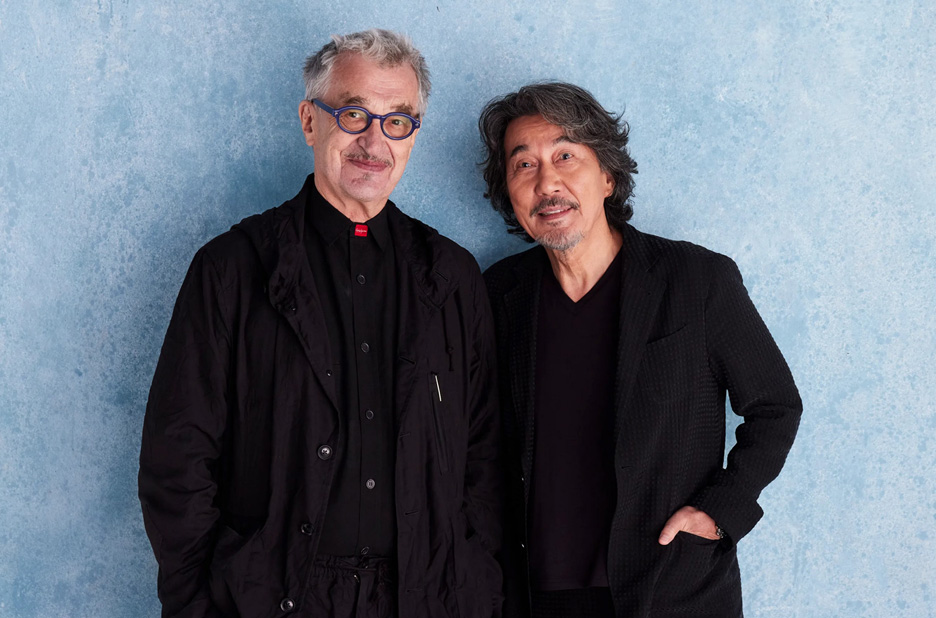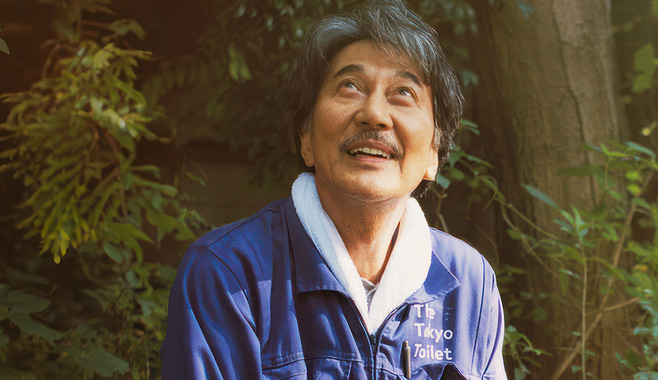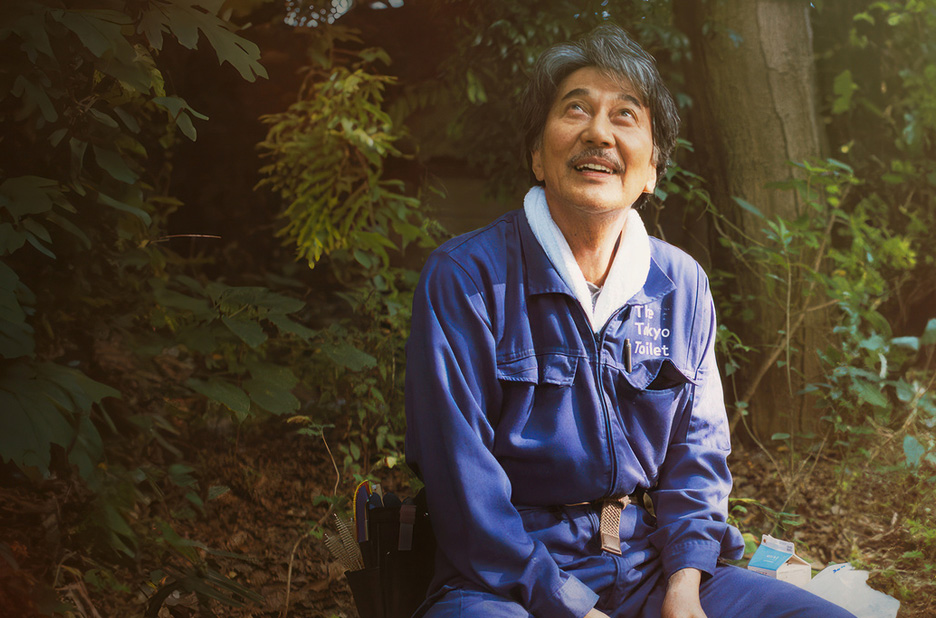Film
Perfect days (2023)
Wim Wenders
5/5
Veteran filmmaker’s late masterpiece
Hirayama is a cleaner of modern Tokyo toilets. He is not a man of many words and revels in the routine and doing his job well. Wenders skilfully enacts a repetition of Hirayama’s days, almost a theme with variations, slowly revealing details of his life and personality. He is always woken up by the sound of an old lady sweeping the street with a broom, he joyfully takes in the sky every morning, he likes 60s and 70s music which he plays on old tapes in his van. His joy is quietly sensual, taking in what reality offers.


His younger co-worker is always late, bored on the job, not particularly meticulous and humorously rates everything ‘out of ten’. We don’t sympathise with his character until we discover that he has a good heart by the way we see him treat his young friend with Down’s syndrome. When the repetition threatens to turn stale, Hirayama’s niece appears and during her presence, we are gifted many other little colourful details. We discover glimpses of everyone’s painful pasts without the characters wanting to reveal too much. The routine is the motor of the film and it purrs as gently as Hirayama’s little white van.
You might know Wim Wenders by his Palme d’Or winner Paris, Texas from 1984 or his uplifting ode to Cuban music from 1999, Buena Vista Social Club which re-launched the careers of many Cuban musicians. Or perhaps you have seen Pina, a flamboyant yet straight-laced documentary tribute to the modern dance of Pina Bausch from 2011. Although eclectic, many unifying threads run through Wenders’s filmography such as an unapologetically independent cinematic perspective infused by a deep knowledge of cinema and a unique poetic fusion of reality and fiction. These are also apparent in Perfect days, a perfect post-pandemic film, pointing out that there is a simple way to live and be content.
I always liked slow films. One of the first I have ever seen, Down by Law by Jim Jarmusch happens to be one of Wim Wender’s favourites. There is something special in relaxing and allowing the slow pace of a film to lead you where it will. It can be very rewarding if you are relaxed enough to let it. It is the equivalent of the Japanese appreciation of komorebi, sunlight filtered through the leaves of a tree. We see Hirayama enjoying his lunch break in the park observing the trees and the light and sometimes other passers-by. We enjoy seeing his contentment with little things, it’s enlightening and invigorating.

Several of Wenders co-conspirators deserve a mention. Kōji Yakusho is masterful and perfect for the role of Hirayama. His best actor award at Cannes was well deserved. As Wenders doesn’t speak Japanese, he had to rely heavily on his writer Takuma Takasaki who appears to have had a lot of independence to tailor the script. It is interesting how well this has worked out. Wender’s wife Donata created the dream sequences in the film which provide a meaningful contrast in their content and texture to the filmed reality. You could say that one of the main characters of the film is Tokyo itself, a populous and brutal city which still allows its residents to find peaceful and harmonious ways to lead their lives. Wenders states in an interview that there would have been no point to portray another depressing character, we see enough of that in our daily lives. The quietly utopian and revolutionary aspect of this film is reminding us that we are enough.
Melancholy intensifies as the film progresses and is particularly strong in the last sequence. As someone who understands that films need a satisfying form, Wenders shapes his work to perfection. Hirayama’s routine and contentment have been disturbed and his discomfort grows until at the end we know he will need to redo his patient work to reestablish the balance.
When the lights came on, still dazed and moved I glanced at an unknown young woman who was sitting next to me. I couldn’t decide if she looked bored or profoundly touched. Just as well as that seemed very Japanese to me.